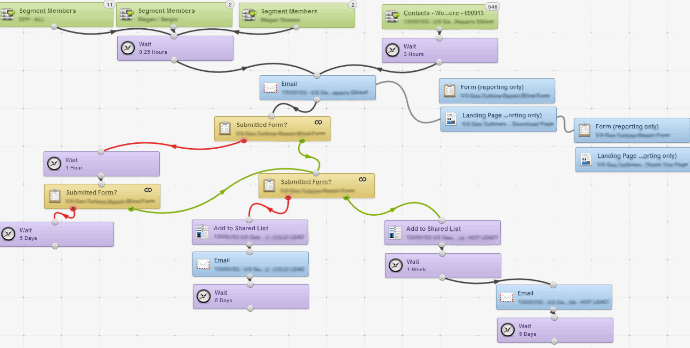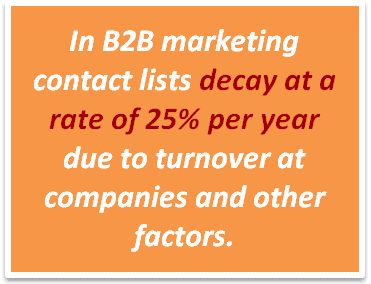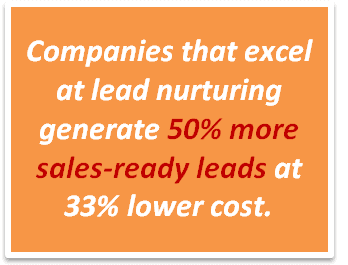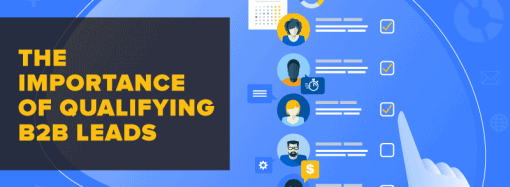Author: MONIQUE OLAN, Marketing Supervisor In B2B marketing, no matter the industry, the focus is on lead generation and creating content that effectively supports the development of these leads. When it comes to producing revenue, no other tool has quite the same returns as marketing automation. This is because of how well it streamlines and enhances the
Author: MONIQUE OLAN, Marketing Supervisor
In B2B marketing, no matter the industry, the focus is on lead generation and creating content that effectively supports the development of these leads. When it comes to producing revenue, no other tool has quite the same returns as marketing automation. This is because of how well it streamlines and enhances the process for generating leads and fostering them for high conversion.
Marketing automation software allows you to:
- Capture new leads from various marketing channels
- Condition and nurture prospects over time
- Segment them based on interest and needs
- Score leads based on level of interest and quality
- Help move them through both the buying process and sales cycle
- Measure effectiveness of all campaign and conversion into sales
Marketing automation, especially when combined with CRM software, is a robust solution that bridges the gap between sales and marketing in B2B campaigns. Marketing automation systems allow marketers to map out coordinated marketing and sales processes from start to finish, providing clarity and insight that is especially important where roles and responsibilities for each department overlap.
How do you generate leads with marketing automation?
Quality lead generation is based around having the RIGHT marketing automation tool. Not all are the same; some have more capabilities and cross-platform integration than others. The optimal marketing automation tool touches on as many marketing tactics and channels as possible and integrates these into various processes throughout the buying and sales cycles. The more that can be strategically planned and connected seamlessly back and forth between marketing and sales, the more effective the marketing automation tool will be.
Here are some of the ways the most comprehensive marketing automation tools can help generate leads:
Building Your Contact Lists, Not Just Housing Them
All companies that are either currently conducting marketing automation efforts or are looking to start marketing automation efforts need to make building contact lists a priority. This effort should be consistent and focused. Determine your target audiences, take the time to retain reliable sources of updated data, and involve the entire organization, both online and offline, in the practice of gathering contacts. Without an audience, but more importantly, the CORRECT audience, it won’t matter which marketing automation software is chosen; marketing efforts will produce limited results at best.
Multiple Lead Sources
The best marketing automation tools integrate with components such as websites, PPC efforts and other inbound tactics to help “automate” your lead discovery efforts. Marketing automation will help identify the anonymous visitors to a website, with the ability to place forms and landing pages on your website to gain actionable information and move prospects effectively down the sales funnel. This process continually grabs fresh new potential leads, ensuring that you reach the people who are showing interest in your product or service at the moment they are interested.
Improved Targeting
Marketing automation also helps segment these potential leads, based on their behaviors and interactions, and then allows you to target messaging based on these discoveries, their stage in the buying process, and demographic information gathered. This ensures that messaging is always relevant and increases the chances that the prospects will react positively, driving them towards a business relationship with your company.
Conditioning and Nurturing Leads
Where marketing automation plays its biggest role is in the nurturing of prospects into educated and quality leads that have a high probability of conversion.
Catching Prospects Before They Slip Through the Cracks
Marketing automation is all about nurturing leads based on lead characteristics. Often, cold leads don’t get the right information at the right time, so they slip through the cracks and never become clients. With marketing automation, you can set up automatic procedures based on the characteristics of each individual lead to nurture them with the information and engagement they need, keeping your company on their mind until they either close or leave your sales funnel altogether.
Follow-ups: The Right Channel at the Right Time
Marketing automation times outreach efforts so that they integrate with your company’s buying process and sales cycle. It automates follow-ups that trigger certain activities based on lead behavior, making sure you react at the right time to ensure high quality leads make it through to conversion. It also automates behavioral routing, putting contacts through targeted marketing campaigns based on their behaviors and demographic information in real time. Tracking and reacting to prospects in real time is one of the greatest benefits of marketing automation, keeping a lead hot while tailoring customized sales conversations.
Post-Conversion Marketing: Enabling Upsell Opportunities and Producing New Customers
Marketing automation enables post-conversion marketing. With many companies, when a lead becomes a customer they leave the sales funnel altogether. The easiest way to increase revenue is to upsell current clients, and the best way to make sure each client is presented with upsell opportunities is through marketing automation. Good marketing automation campaigns help to generate repeat opportunities by gathering new data, deepening the customer relationship and driving additional sales opportunities into the sales funnel.
Reporting That Matters
Marketing automation tools provide detailed reporting, enabling better marketing decision making based on response data. Reporting from marketing automation campaigns help companies better understand their customers, see what each customer is interested in, make timely campaign adjustments and, most importantly, help show transparent ROI from every integrated marketing effort.
Better Metrics
With marketing automation, you go past the vanity metrics such as shares, clickthrough rates, and cost per click. Instead, it allows you to pull more powerful and useful statistics such as cost per lead, cost per opportunity and number of leads and opportunities in the sales pipeline. Marketing automation bridges the gap between marketing and sales by providing data that show not just what each contact record managed to do during each campaign, but also which efforts should be expanded upon.
Closed-loop Reporting
Closed-loop reporting allows you to tie revenue back to campaigns, connecting your marketing spending with revenue generated, providing insight into each campaign’s influence and success within your lead generation efforts. Now you can see where the most valuable and least valuable leads are coming from, which marketing efforts are contributing the most to revenue growth and which could be improved upon or eliminated.
Lifecycle Reporting
Another place where marketing automation enables marketers to clearly see the integration between marketing and sales, lifecycle reporting combines all marketing and sales reports into one overall reporting platform to help see the health of your sales funnel and show where prospects are in the buying process. This also includes insight into where potential leads are getting lost and where they have the least friction, allowing you to make adjustments as needed and ensure maximum efficiency within your sales pipeline.
This is just the tip of the iceberg!
Marketing automation is essential for B2B companies, but often companies don’t even realize the full potential of the tool they have! With so many capabilities and potential for successful lead generation, it is important to have dedicated and proficient individuals managing your marketing automation at all times. While your marketing campaigns are “automated” there is still a need for a marketing team to be the “brains behind the process.” For marketing automation to be successful, you must place the customers, their needs and best interests at the heart of your strategies. Knowing your customer through and through, and developing integrated marketing strategies catered to their pain points and needs, is the backbone to your marketing automation success.
It’s Time Your Marketing Starts Generating Results
You now recognize the value of marketing automation. Ready to integrate it into your business? Let us pilot this complex tool for you and do for your company what we’ve been doing for clients for more than 14 years – give you marketing that works. With experience utilizing more than seven different successful marketing automation tools, Dream Factory can take your business to the next level. CLICK HERE to get started.
***Statistics pulled from Forrester marketing research.***















